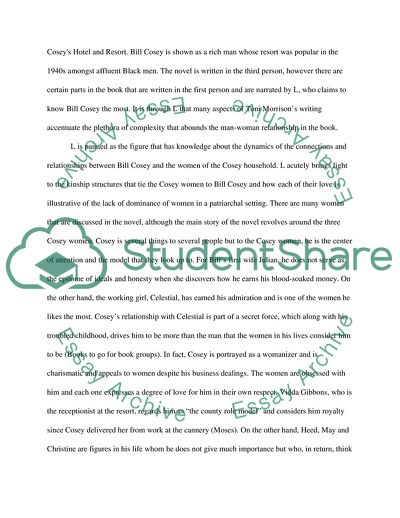Cite this document
(Feminism in Toni Morrison's Love Book Report/Review, n.d.)
Feminism in Toni Morrison's Love Book Report/Review. https://studentshare.org/literature/1740742-feminism-english-literature
Feminism in Toni Morrison's Love Book Report/Review. https://studentshare.org/literature/1740742-feminism-english-literature
(Feminism in Toni Morrison'S Love Book Report/Review)
Feminism in Toni Morrison'S Love Book Report/Review. https://studentshare.org/literature/1740742-feminism-english-literature.
Feminism in Toni Morrison'S Love Book Report/Review. https://studentshare.org/literature/1740742-feminism-english-literature.
“Feminism in Toni Morrison'S Love Book Report/Review”. https://studentshare.org/literature/1740742-feminism-english-literature.


